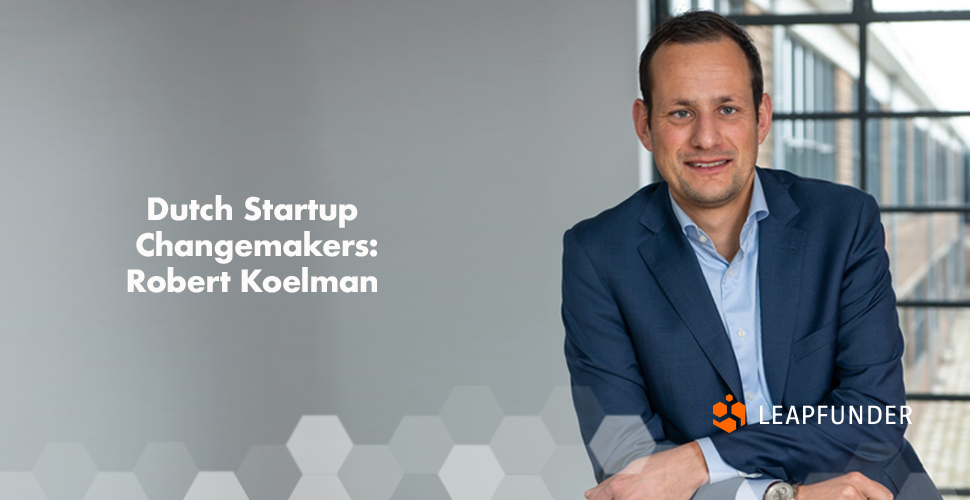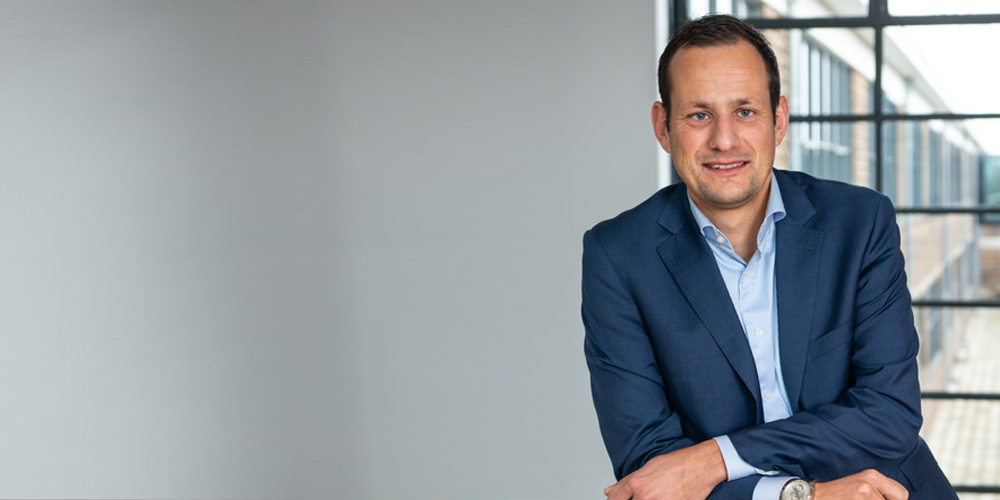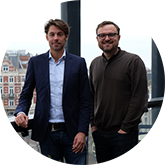As a Business Developer at Bossche Investerings Maatschappij (BIM), Robert Koelman helps, guides and advise startups in their aim to achieve a sustainable and profitable business model. In this role, he’s affiliated with Braventure where, in addition to an interesting program, they also offer financing options from the Brabant Startup Fonds (BSF). Find out how he entered the startup world, what lessons for founders he shared with us and what he predicts for the Dutch startup ecosystem.

1. Hi Robert, thank you for agreeing to do the interview. Could you tell us a bit about your background and how you entered the startup world?
I have entered the startup world 1,5 years ago when I joined the Bossche Investeringsmaatschappij (NV BIM). Before that, I worked for ING in business finance. In addition, since I made my first money as a 15-year-old child, I’ve been really attracted to stock exchanges. At that age, I made my first investments in ICT companies that were innovating during that time. Since then, I’ve been looking for new Google’s on stock-exchanges in various sectors. I discovered that my drive for innovation, trends and new business models was less applicable in the banking world. The opportunity at the BIM came at the right moment and I got the chance to make a local impact for young entrepreneurs and companies with new ideas. That’s matching my professional motivations in a city where I was born, where I like to live and where I love to contribute to stimulating economic activity.
2. You’re a Business Developer at the Bossche Investment Company. In your role, you help, guide and advise startups in their goal of achieving a sustainable and profitable business model. Tell us more about your mission!
The NV BIM is one of the oldest public investment companies in the Netherlands. Our core business has been to create multi-company buildings for a long time. Our current vision, led by our current CEO, is to empower entrepreneurs by servicing in housing, but also participation, connecting and supporting them.
Our mission is that new entrepreneurs have an excellent infrastructure to start their business with the highest success ratio as possible. We started in 2016 with a scaleup fund together with six well-known entrepreneurs. It’s a unique fund due to the combination of a long term public growth strategy and active coaching by the private investors. We’re very happy we were able to close our 5th participation in a strong data/ICT company this month and we are busy at the moment with some very interesting opportunities for the second part of this year.
Among the more than 500 tenants that we are housing in different buildings, we created two startup communities in DATA/ICT and Food Innovation/Agriculture. In 2018, we realised that for most of our startup entrepreneurs it was hard to become a scaleup and to overcome the famous valley of death. A lack of funding was one of the most important issues. Therefore, we started with two public startup funds; the first is a local (Gemeente ‘s-Hertogenbosch) DATA-ICT early-stage fund for new innovative propositions in DATA-ICT. The second early-stage fund is managed by the province of Noord Brabant and focuses on 6 top clusters: HTSM, Health, Food, Biobased, Maintenance and Logistics. These two funds became highly important to make new innovations possible.
My added value is to challenge entrepreneurs on market validation and trends, think along in new business models and to help them become investor-ready.
This year we see the first examples of young entrepreneurs who have successfully started a business in our communities, approaching the scaleup phase and becoming visible to our private investors.
3. You’re affiliated with Braventure, who helps startups get from idea to product-market fit as quickly as possible. How do you enhance the startup ecosystem in North Brabant together? What is it in the startup world that particularly attracts you?
Braventure is very important and it definitely helps us to become successful. We have great development organisations in each major city in Noord Brabant. The role of our two excellent Universities and High school, where young entrepreneurs are formed is also very important.
Each of my Business Developers colleagues has their own experiences, networks, background and knowledge. Together we are able to make a real difference.
I like to think big. My focus is on innovative companies in the stock markets in the USA, followed by China. When it comes to Europe/the Netherlands wanting to become a leading place for innovation in the world, I highly believe in cooperation with all relevant parties in Noord Brabant. We are building an infrastructure, which should make it possible for us to participate on the world stage.
4. Considering you advise startups on a daily basis, what are the three most important lessons for founders you would share with our readers?
The first lesson is regarding funding. Because it’s a structural pain in the ass for every startup founder, but also related to my background. Quite often, it’s not one of the main competencies in a team or it takes too much time and distracts from the core businesses, but it’s so important to organise funding well. Make sure you start searching for funding on time; or even better, always talk with funding parties even if there is no acute need. In extension, be critical of the funding party you are cooperating with. Make sure you understand their goals, the opportunity and willingness to back-up when things go in a different way.
The second one is regarding the team. Make sure you have the best co-founders in critical positions in your startup. Very often, I see that entrepreneurs try to do everything on their own, also because they are trying to stay the one and only on the cap table. It’s much harder to keep on the speed on your own and to have all the knowledge in different disciplines (or to pay for expensive hired knowledge). In addition, being a part of a team is much more fun. But that’s just my humble opinion.
The last one is regarding the willingness to share, collaborate and stay curious. The chance of being successful becomes much higher with an open mind.
5. What’s the next big thing in the startup world? What do you predict for the Dutch startup ecosystem in the near future?
COVID-19 made us look at the future in a different way. This will definitely affect the startup world. The positive things that we learn from the COVID-19 crisis are the importance of public health, nature and animal welfare.
A number of developments will accelerate, such as energy transition, use of data and tech, sharing instead of owning, more vegetable above meat consumption, and more attention (and money) for healthcare and biopharma.
I noticed interesting developments in the Dutch startup world. It’s hard to predict the near feature but I am convinced that with our smart students and entrepreneurs in combination with the ever-improving Dutch startup ecosystem we will have a solid contribution to world-wide innovations in the trends I mentioned. Hopefully, one of them started in the food or data community in ‘s-Hertogenbosch!
Thank you very much for your insights, Robert. We wish you the best of luck in your future endeavours.
Join our network of startups & investors!


